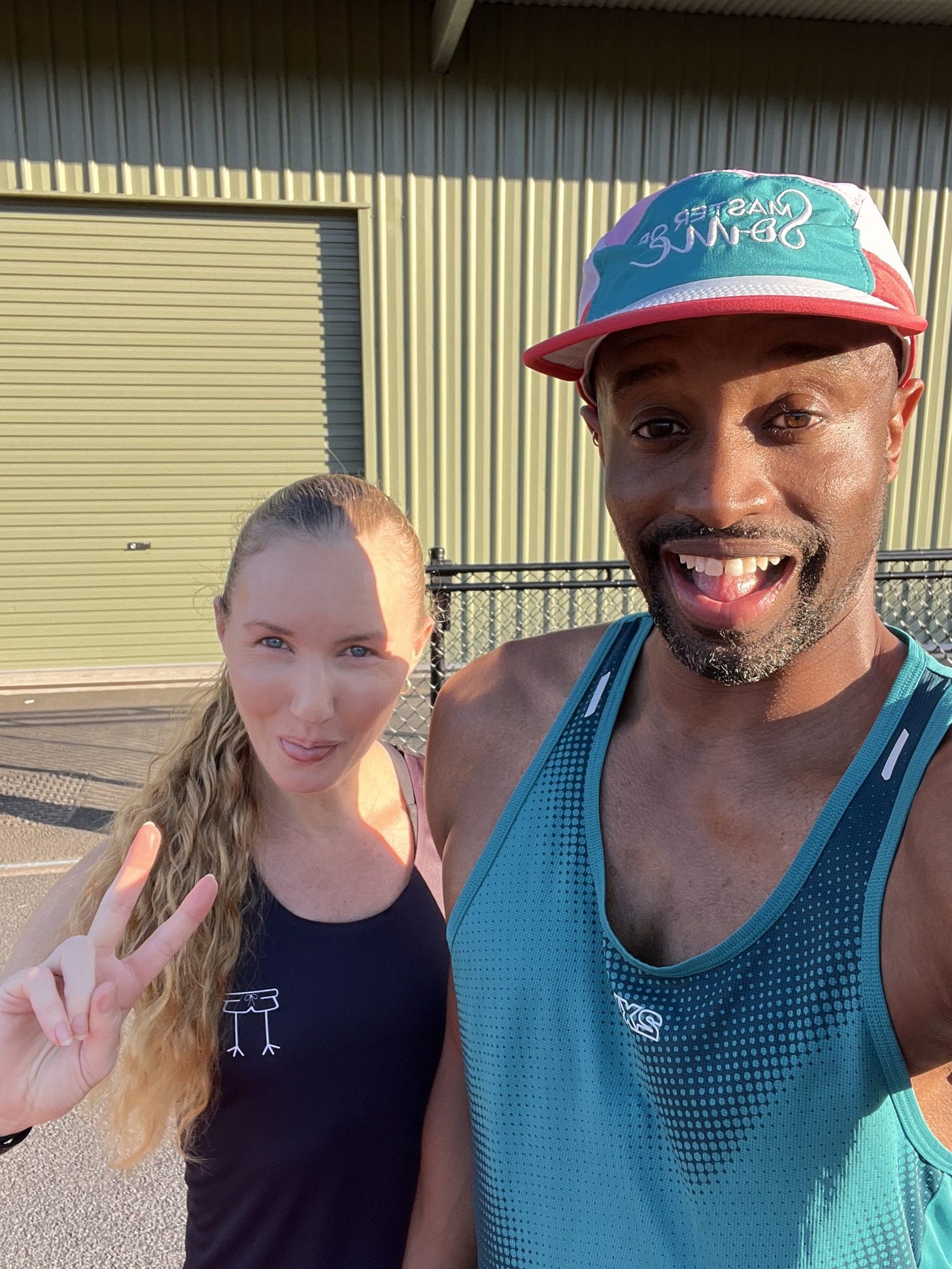What Happens When I Do a Track Workout With an Elite Runner?
The Two Ways I’ve Approached Running| Past & Present + What if time were like money
🔁 The Two Ways I’ve Approached Running| Past & Present
🏃🏽♂️What Happens When I Do a Track Workout With an Elite Runner?
⏰ 💰What if Time Were Like Money?
🔁 The Two Ways I’ve Approached Running| Past & Present
There are two ways I've approached running over the years. And tbh, it really goes back and forth depending on where my head is.
Past
At first, I started running. I played mental games. I'll put my shoes on, walk out the door, and run—no plan, no goal, just me, the road, the track, the trail, etc.. Whatever was on my mind, it needed to feel good. During this I don't care about speed, distance, or any of those sexy nerdy run metrics that I presently obsess over. It was like therapy but without all the talking… which I realized is the annoying but most crucial part of therapy… I digress.
Present
But then things changed because I wanted to see progress. I got serious—and bought a GPS watch to track everything. I began to analyze my separation. With a focus on pace, then heart rate training, and now power efforts and watts. Now, every run has meant something because if it’s not on Strava, did you even run? So, yeah, that's exciting too. There is a sense of urgency when you see yourself becoming faster or stronger. But it's… different.
Future?
Now I'm starting to think maybe it's time to “make running fun again.” Does every run need to be a scientific experiment?
When was the last time you ran just because it felt good? No clock, no data, and just your way?
What Happens When I Do a Track Workout With an Elite Runner?
So, I did a thing I’ve been wanting to do for a while — I did a track workout with someone and asked them progressively hard questions. Sound familiar? Yes, it’s the running version of Sean Evans/First We Feast “Hot Ones” YouTube series.
Audrey (aka Simply Audz) laced up her spikes to do a 400m repeat workout with me and we went deep on consistency. It’s probably the least exciting word in running, but it’s the difference between, “I guess that was okay” and, “Wow, I didn’t know I had that in me.” Audrey’s story in this episode basically says it all: if you want lasting results, tiny, steady steps are where it’s at. Not big leaps, not crazy paces. Just… doing the basics again and again.
Watch the full episode here (or listen to it on your next run - warning: there is a lot of heavy breathing in it 🫠)
⏰ 💰What if Time Were Like Money?
“Running Out Of Time”
I’m obsessed with time in an unhealthy way at… times (better choice of words?). I’m aware of it more than most people because of my neurodivergent bug/feature of having ADHD. Yes, I take in time differently because there are more slices of reality that I consume. Think of it like a pizza. Most people have a pizza with eight slices. I have 16 slices. So it’s more granular and in my face than most.
I’m sometimes running late to things, sometimes hyper-aware of just being as early as possible, or generally feeling like I never have “enough of it” like money.
So, as a fun, creative thought experiment, I’ve come up with this fictional world where time was actually the currency, and there were no cars, and everyone just ran (how amazing, right?!) It’s tied to how fast you move. The faster you go, the more time you "earn," but if you slow down, it just starts slipping away. So there’s this sprinter, let’s call her NEA, who’s got this crazy ability to speed up time in her life, and she starts noticing these weird glitches—like seeing her future self pop in and out, and her past catching up to her at the most random moments.
Anyway, everyone in the city is running out of time (literally), but then Nia finds this underground group of people who are like, "Nah, we're done running," and they’re trying to break out of the system by just...stopping. They find stillness in a world that’s obsessed with always moving faster.
As Nia figures out how to survive in this time-rigged game, she starts seeing how the system is basically screwing over most people, keeping them running forever. At the same time, only a few actually get ahead—some overtones of socioeconomic inequality, politics, etc. The whole idea of always having to hustle just not to get left behind is how some people are born with less time to start with. It’s about Nia figuring out when to push hard and when to stop altogether and asking the big question: what's the real cost of time, and what does it mean to be free from a system that’s always keeping you on the move?
This idea has been rattling around my brain for years now, it may see the light of day on some medium in the future.



